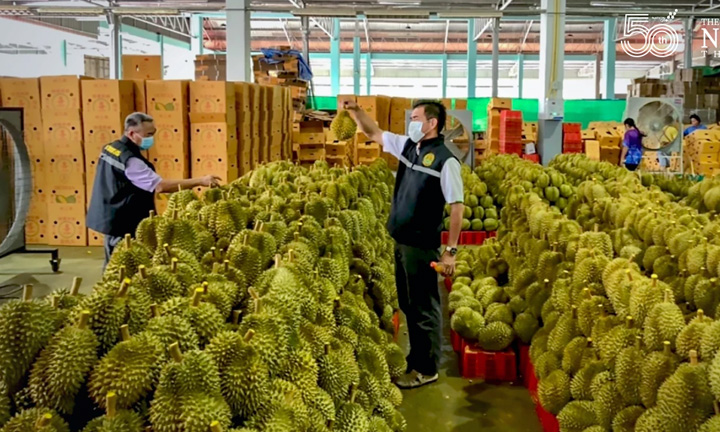SOURCE: The Nation
Last year China has temporarily banned the import of longans from Chanthaburi after they had found traces of insecticides that are not approved by the Chinese government,” said Patchaphon Meunjaeng, deputy director-general of Department of Agriculture on Tuesday. “The Ministry of Agriculture and Cooperatives has coordinated with farmers and fruit processing factories to trace back to the source of insecticides and successfully fixed the problem, prompting China to eventually lift the ban.”
“To prevent such incident from happening again while the harvesting time of durians and mangosteens is drawing near, the ministry has tasked Department of Agriculture to provide training on the use of insecticides approved by foreign markets as well as the prevention of Covid-19 contamination on exported fruits,” he said. “Farmers who attend the training will also learn of regulations of Food and Agriculture Organization (FAO) and World Health Organization (WHO) regarding safety procedures in fruit manufacturing and packaging during Covid-19 pandemic.”
The training will be provided at Chanthaburi’s Agricultural Research and Development Institute from January 28 onward, whereas fruits farmers in the eastern provinces of Rayong, Chanthaburi, and Trat are welcome to attend.
Over 700,000 rai plantations in the three eastern provinces are dedicated to three economic fruits: Durian, mangosteen, and longan. Department of Agriculture estimated that this year’s output of the three fruits cold reach 1.3 million tonnes and generate more than 100 billion baht of income from export. The three provinces are also locations of 702 fruit processing factories.

